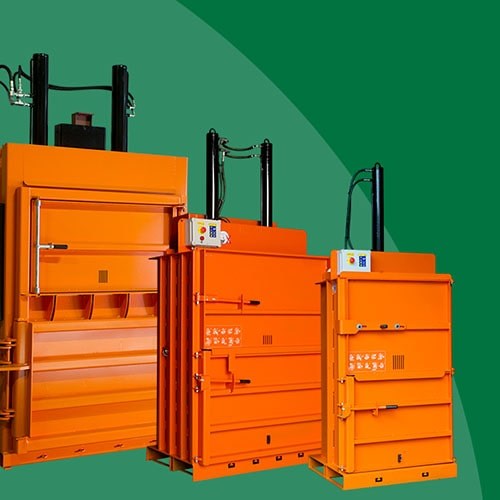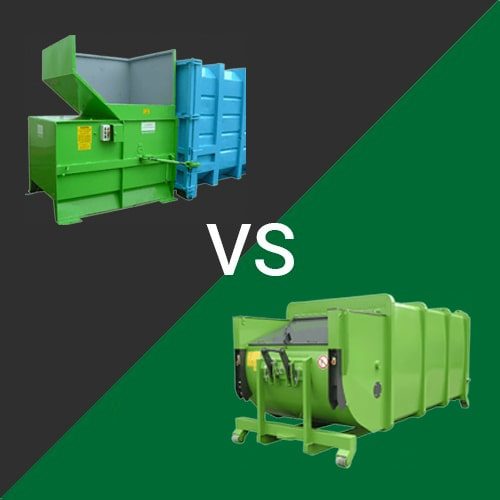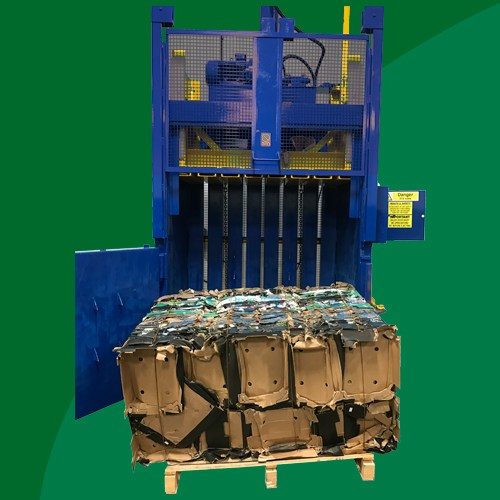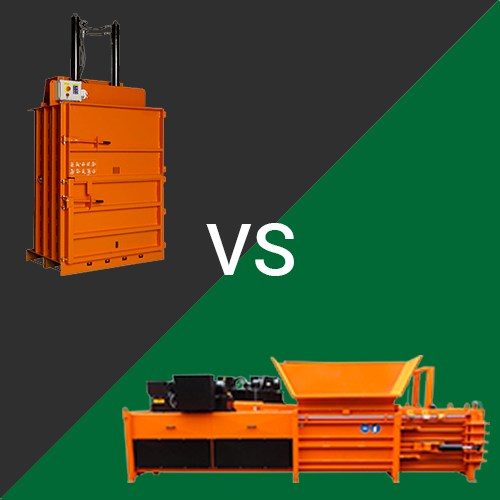Different Types of Waste Balers: Which One Suits Your Needs?
In today’s environmentally conscious world, efficient waste management and recycling have become crucial for businesses and communities alike. One of the essential tools in this endeavour is the waste baler, a piece of equipment designed to compress and compact various types of waste materials into dense, manageable bales. With a wide range of baler types available, choosing the right one can significantly impact your recycling efforts and overall waste management strategy.
Introduction to Waste Balers
Waste balers are indispensable machines that streamline the process of collecting, storing, and transporting recyclable materials. By compacting waste into compact bales, these machines reduce the volume of materials, making transportation and storage more efficient. Balers come in different shapes, sizes, and configurations, each designed to cater to specific needs and applications.
Vertical Balers: Features and Benefits
Vertical balers, also known as upstroke balers, are among the most common types of waste balers. As the name suggests, these balers compact materials vertically, applying pressure from the top down.
Ideal for businesses with:
- Limited floor space
- Lower-volume waste processing needs
- Examples: small retail stores, offices, restaurants
Key advantages
- Compact footprint, making them a space-saving solution for smaller facilities
- Relatively easy to operate and maintain
- Popular choice for businesses prioritising simplicity and cost-effectiveness
Suitable for handling a wide range of materials
- Cardboard
- Plastic
- Paper
- Textiles
Typically produce bales of varying sizes, depending on
- Specific model
- Amount of waste processed
Horizontal Balers: An Overview
Horizontal balers, as the name implies, compress waste materials horizontally, applying pressure from the side. These balers are designed to handle high-volume waste processing, making them an excellent choice for larger operations, such as warehouses, distribution centres, and industrial facilities.
Horizontal balers are known for their efficiency and high throughput, capable of processing large quantities of waste in a relatively short amount of time. They can accommodate a wide range of materials, including cardboard, plastic, paper, and even metal.
One of the key advantages of horizontal balers is their ability to produce uniformly sized and tightly compacted bales, which are easier to store and transport. Additionally, many horizontal balers are equipped with advanced features, such as automatic bale ejection and tie systems, further enhancing their efficiency and productivity.
Single Ram Balers vs. Closed Door Balers
| Feature/Aspect | Single Ram Balers | Closed Door Balers |
| Design | Open-ended; bale formed and ejected from the same side | Closed chamber; bale formed inside, ejected after door opens |
| Cost | Generally simpler and more cost-effective | Typically more expensive due to enhanced features |
| Waste Processing Needs | Suitable for moderate waste processing needs | Suitable for handling potentially hazardous or messy materials |
| Safety and Containment | Basic safety and containment | Enhanced safety and containment |
| Ideal Applications | Businesses with moderate waste processing requirements | Applications requiring safe and clean handling of materials |
Specialised Balers for Cardboard and Plastic
As recycling efforts become increasingly focused on specific materials, specialised balers designed for cardboard and plastic waste have gained popularity. These balers are optimised to handle the unique characteristics of these materials, ensuring efficient compaction and baling.
Cardboard balers are specifically designed to handle the rigid yet lightweight nature of cardboard boxes and packaging. They typically feature specialised feed systems and compaction mechanisms that can effectively flatten and compact cardboard without damaging or tearing the material.
Plastic balers, on the other hand, are engineered to handle the resilient and often bulky nature of plastic waste, such as bottles, containers, and film. These balers are capable of exerting high levels of compaction force, ensuring that plastic materials are densely packed into compact bales.
Industrial Recycling Balers: Heavy-Duty Solutions
For industrial-scale recycling operations and facilities that generate massive volumes of waste, heavy-duty industrial recycling balers are the go-to solution. These balers are built to withstand the rigours of continuous, high-volume processing and are constructed with robust materials and components that can handle even the most demanding applications.
Industrial recycling balers are typically larger in size and feature powerful compaction forces, enabling them to process a wide range of materials, including metals, plastics, and mixed waste streams. They are designed for maximum efficiency, with features such as automatic tie systems, bale ejection mechanisms, and advanced controls for optimised operation.
Choosing the Right Baler for Your Business
With such a diverse range of waste balers available, selecting the appropriate one for your business is crucial for maximising efficiency, reducing costs, and achieving your waste management and recycling goals. Here are some key factors to consider when choosing a waste baler:
- Business Size and Waste Volume: Evaluate the size of your operation and the approximate volume of waste generated. This will help determine the appropriate baler size and capacity needed to handle your waste processing needs effectively.
- Types of Waste Materials: Identify the predominant types of waste materials your business generates, such as cardboard, plastic, paper, or mixed waste streams. Certain balers are better suited for specific materials, ensuring optimal compaction and baling.
- Space Considerations: Assess the available floor space in your facility and determine whether a vertical or horizontal baler would be more suitable. Vertical balers are ideal for limited spaces, while horizontal balers typically require more floor area.
- Throughput Requirements: Consider the volume of waste processing required per day or week. High-volume operations may benefit from larger, more powerful balers, while smaller businesses may find compact models more suitable.
- Operational Efficiency: Evaluate features that can enhance operational efficiency, such as automatic bale ejection, tie systems, and advanced controls. These features can streamline the baking process and reduce manual labour.
- Safety and Compliance: Ensure that the baler you choose meets all relevant safety standards and regulations for your industry and location. Closed door balers, for example, may be preferred for handling certain types of hazardous or messy materials.
- Budget and Cost Considerations: While investing in a high-quality baler can provide long-term cost savings, it’s essential to consider your budget and weigh the upfront costs against the potential benefits and return on investment.
Choose Landfill Alternatives Today!
Maximise your recycling efforts with Landfill Alternatives’ top-notch waste balers. Our cutting-edge machines are designed to streamline your waste management process, reducing costs and promoting sustainability. Unsure which baler suits your needs? Leverage our user-friendly product finder or request a free on-site visit from our experts. Have pressing queries? Our knowledgeable team is just a call away, ready to guide you towards the perfect baling solution. Choose Landfill Alternatives and embark on a greener, more efficient future for your business today!



